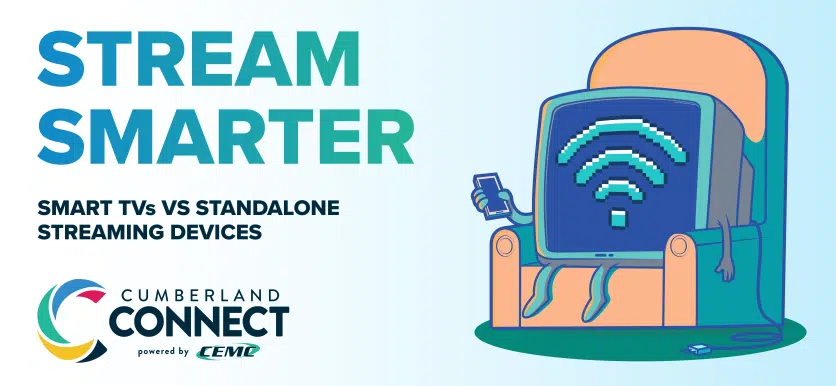Stream Smarter
Comparing Smart TVs vs. Standalone Streaming Devices
When it comes to streaming entertainment, there are countless devices available on the market. But when it comes down to it, they are all broken into two categories: smart TVs and standalone streaming devices. While both options allow you to watch your favorite shows and movies, we’ll go over the main differences between the two so you can decide which device is the better fit for you.
Smart TVs
Starting with Smart TVs, these devices come equipped with streaming capabilities built-in – allowing you to access popular streaming apps such as Netflix, Hulu, and Amazon Prime Video directly from your TV. In addition, many smart TVs have voice recognition capabilities and can connect to other smart home devices, making it easy to control your TV and other devices with just your voice.
Standalone Devices
On the other hand, standalone streaming devices, such as Roku, Amazon Fire TV, and Apple TV, offer more flexibility and customization options. These devices can connect to any TV with an HDMI port, allowing you to turn any TV into a smart TV. In addition, standalone streaming devices often offer access to a wider range of streaming services and are easily upgraded as new services become available.
The Bottom Line
Another key difference between smart TVs and standalone streaming devices is price. Smart TVs are often much more expensive than standalone devices, especially if you are looking for a high-end TV with the latest technology. On the other hand, standalone devices are often more affordable and can easily be replaced if they become outdated.
Ultimately, the choice between a smart TV and a standalone streaming device comes down to personal preference and budget. If you already have a TV and are looking to add streaming capabilities, a standalone device may be the better option. However, if you are in the market for a new TV and want to consolidate your streaming needs into one device, a smart TV may be the way to go. No matter which option you choose, both smart TVs and standalone streaming devices offer a convenient and easy way to access your favorite entertainment content.
But to make the most out of your streaming devices, you need a reliable internet connection. Fiber internet provides fast, reliable internet speeds that are ideal for smart home devices. With fiber internet, you can stream live video from your security cameras without buffering or lag, control your smart devices in real-time, and receive alerts and notifications without delay.
In conclusion, smart home technology can significantly enhance the security of your home, and reliable fiber internet can help you make the most out of your smart home devices. By using these technologies together, you can have greater peace of mind knowing that your home is safe and secure.
